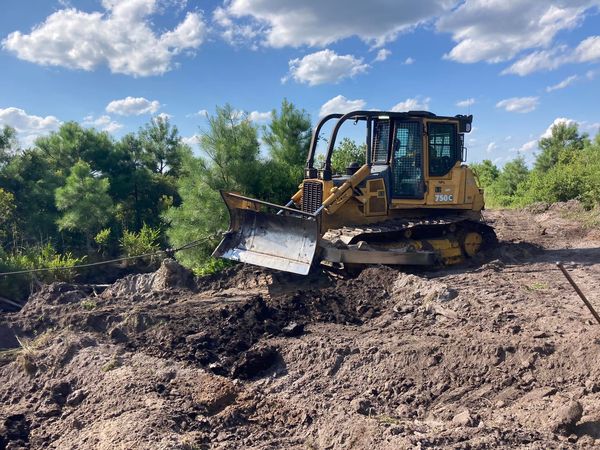The following is partial transcript from last week’s Columbus Connection by Jefferson Weaver. The Connection is available every week on Spotify.
For the past few days, a heavy layer of smoke has laid over Crusoe Island and the Green Swamp. Folks who are experiencing their first really active burning season don’t understand that there’s no way to manage smoke from a wildfire, without the intervention of God’s merciful hand.
Even if there was some magical device or substance, a miraculous device that the Forest Service could deploy to make the fires go out and the smoke go away, they currently don’t have the personnel for such a feat. Despite having some of the top firefighting equipment available, they don’t have the money and manpower. Yet we are looking at heightened wildfire risks leading into the summer months.
Too much of it comes down to pay. It’s a sad state of affairs when state employees can qualify for state welfare assistance, but some young Forest Service personnel are just that. As such, they leave the Forest Service for other jobs where they don’t have to be gone for days on end, and where their families don’t have to be constantly worried about where the next meal is coming from, or if dad or mom will even make it home for that meal.
We have a perfect storm of sorts in our state right now; even though the majority of last year’s hurricane damage was in the west, we had our own strong storms (though nothing like Helene) in the east. Virtually every stretch of woods in the state, with a few exceptionally well managed tracts, have a plethora of dead trees, limbs, bark, leaves and the pine straw we find so ubiquitous to eastern North Carolina.
The entire state is under some level of drought; we aren’t as dry here as we have been, or will be, but it’s still dangerously dry, right when folks are beginning to enjoy campfires, grilling out, burning off fields and gardens, and cleaning their yards of the detritus of winter.
Yet some of the heavy artillery in wildland firefighting is sitting idle. The tractors, the plows, the other heavy equipment have to wait until there is a Forest Service worker available to deploy them on a fire. With all available wildland firefighters deployed to the massive fires out west, those here at home have to scramble from blaze to blaze.
The front lines – the volunteer fire departments – are also suffering a lack of manpower, since nowadays people work too far from home to be able to readily answer the wail of the siren from a fire alarm beside the local fire station.
Then add to the fact that more and more people are moving to rural areas of our state, leading to more carelessly tossed cigarette buts, hot catalytic converters parked over dry grass, and plain old fashioned bad choices.
The state needs to address the problem of low pay in the NCFS before they can recruit and keep good firefighters. The old guard and the middle aged guard, if you’ll pardon the pun, are retiring faster than they are being replaced. The Forest Service is rarely seen except when there’s a fire, but during the remainder of the year, they aren’t sitting around on their hands or painting rocks. They conduct hazard mitigation burns, provide disaster response, collect seedlings for forest replantings, advise landowners and timber managers on proper forest maintenance, and provide a myriad of other vital tasks that are rarely noticed by the general public.
But none of those tasks get done if they lack the personnel and equipment to do the job.
Hopefully Agriculture Commissioner Steve Troxler will bend an ear or two in Gov. Josh Stein’s office and in the halls of the legislature. What’s happening in western North Carolina right now is comparable to the fires in California, except there isn’t quite the population density. It’s just a matter of time, however, before a dry spring, a hot breeze, and an accidental burn threaten a city or two, and there’s no one around to run a plow to cut a firebreak.







